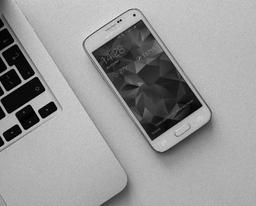Taking Charge of Your Phone And Dealing With Addiction

In the United States, cell phone addiction is a real thing. According to a 2020 study on cellphone addiction, nearly 8 in 10 respondents believe that they are addicted to their mobile devices. About 7 in 10 Americans sleep with their phones at night, and half of them say that they would prefer to go without sex than give up their phones for a year.
You might think this is bad, but it gets worse. For example, a third of Americans in relationships said they spend more time with their phones than with their partners. In addition, nearly 2 in 10 parents admit they are on their phones more than they are with their children.
If you see yourself in any of the statistics above, you probably know your brain is craving a digital detox. If not a complete detox, then at least a way to establish a good relationship with your mobile device. This article provides ideas and tips to help you take charge of your device and improve your mental health.
Why Do We Get Addicted To Our Phones?
For the most part, we get addicted to our phones because our bodies generate and shoot dopamine to our brains when we use them. This dopamine shot happens when we get messages from friends and family or receive likes on our social media pages.
Dopamine is a feel-good chemical that is primarily responsible for keeping us motivated. For instance, when you have great sex, eat an excellently prepared meal, or exercise, your body releases dopamine to encourage you to do it again.
Similarly, you receive that same jolt of dopamine when something interesting happens with your phone. Again, because your brain understands what happens when something happens on your phone, it gets attached to the potential and continually encourages you to check it out.
You Don't Always Get The Dopamine
Sometimes, you don't feel that shot of dopamine when you check your phone. For instance, if you're on your phone and checking work email when you should be resting, you won't get a dopamine shot. You're more likely to feel stressed. You also get no dopamine if you go on social media after you've had a challenging day and start to compare yourself to others.
However, even the stress doesn't keep us away from our phones as we have gotten used to keeping ourselves busy with them. It can be easier to look at that work email or compare ourselves to others instead of sitting still or doing nothing. Many people are afraid of being bored and do not know how to do something else.
Changing addictive behavior can be difficult because it often requires that you feel terrible before you can begin to feel good again. Attempting to redefine our phone-use habits would mean that our brains would get fewer dopamine kicks. Instead, our brains would have to deal with the anxiety and discomfort that comes with the feeling of "I just want to check my phone."
If you do not believe that using your phone can turn into an addiction, compare the ways most people use their phones with the symptoms of addiction.
Phone Use And Addiction Symptoms
What are some of the signs that you are addicted to your phone?
You use your phone to deal with uncomfortable emotions
Feelings like boredom, loneliness, or anxiety can be complicated to deal with, and many people use their phones as a means of escape. But, unfortunately, repeatedly doing this creates neural pathways in our brains so that we automatically reach for our phones whenever we feel those emotions. With time, we get so used to avoiding these feelings that not having our devices can be very uncomfortable or even impossible. At this point, our phones become crutches that we depend on for emotional stability.
You reach out for your phone on autopilot
Have you ever caught yourself scrolling on your phone with no memory of why you picked it up or how long you've been on Instagram? Often, people with phone addictions can spend vast amounts of time on their phones before realizing that they've only been scrolling through their empty emails. Using your phone can trigger the part of you that happily functions on auto-pilot.
You know you spend your entire day on your phone
A recent US study featuring more than 100,000 participants found that the average person spends at least 2.42 hours on their phone every day. However, heavier phone users spend at least 3.75 hours on their devices every day. That is roughly fifty (50) days a year.
According to the same study, most people reach out to touch their phones at least 2617 times throughout the day. Add this to the fact that most people spend their phone time playing games or browsing on social media, and you can see the challenge.
You would never give up your phone
Many people suffering from device addiction know they have a problem. As mentioned earlier, 8 in 10 phone users confessed to being addicted to their mobile devices. However, even though they understand that there's a problem, 9 in 10 users feel uncomfortable about leaving their phones at home.
Reality is boring
The world on our phones is easy to engage in. Sometimes, so easy that we prefer to go there than engage with the real world. Many people find themselves reaching for their phones instead of spending quality time with friends and family. Some might miss enjoying a breathtaking view because they want to take a picture for social media.
These actions take us away from the real world and keep us attached to the digital world and our devices.
Leaving your phone makes you anxious
Have you ever seen a drug addict that hasn't gotten a fix in days? They're typically very angsty and irritable and cannot find calm until they get their fix. Many phone users experience the same feelings when they are separated from their devices for a significant period. However, when they get their devices back, they calm down and dive back into their digital worlds.
If you find that you identify with some or all of these symptoms, it's important not to judge yourself too harshly. If you are content with your device and the state of your relationship, there's probably nothing to worry about. The most important thing is to become more conscious about how you relate to your device.
Tips To Take Charge Of Your Phone And Break Addiction
If you've come this far and realize that there's a problem, you don't have to get overwhelmed. Instead, to deal with your phone addiction, you can work at making tiny and incremental changes that will work for you and your goals. There are a few steps that you can start taking to reduce dependency on your mobile device.
- Do you reach out for your phone immediately you wake up? Maybe because you use your phone as an alarm clock? This is understandable, as 8 in 10 American phone users do the same thing. However, this habit reinforces your device dependence. The solution? Get an old-school alarm clock (or a radio clock) and use that to wake up in the morning. Yes, it is old school, but reaching for a clock is better than going for your phone when you wake up.
- If you want to make sure there's no chance you'll grab your phone first thing in the morning, leave it out of your room altogether. Although it might feel weird to get into bed without your phone, think about all the things you can do instead of being on social media. You could read, spend some intimate time with your partner, meditate, and maybe even sleep (what a shocker).
- If you find that you reach for your phone every time it makes a sound, you might want just to turn off all sounds and notifications. Those notifications are - more often than not - unimportant and simply serve to remind you of your phone's existence - thus continuing the dependence.
- Do you use your phone when you're walking, driving, or commuting? Instead of using your phone, try to be present for the task at hand. Give your brain a rest so that you can enjoy the view or drive safely.
- Do you automatically pick up your phone when you're waiting in line at the grocery store or sitting on the loo? First, try to notice when you reach for your phone and see if you can stop yourself for a bit. Then, instead of looking at your phone, sit in the stillness.
- If you can successfully figure out the times you automatically reach for your phone and fix that behavior, you can extend the habit. What times do you not use your phone? For example, when you're making a meal or taking a bath? What other times are there? Think about other activities that you can do without your phone and focus on doing them.
- Nature abhors a vacuum. If you stop using your phone as much, you'll need to do something else with all the spare time you'll have. Think of behaviors you can employ to replace your phone addiction.
For instance, if you're on a public commute, you could read a book instead of checking social media. If you're in line at the grocery store, have a conversation with the person in front of you. If you're in bed, read a book or listen to music instead of chatting on Whatsapp.
Dealing With Emails
If your need to answer work emails is what fuels your phone addiction, how about you remove your email account from your device? Then, instead of checking them on your phone, sit down on your computer to read and respond to emails.
If you can manage it (and your colleagues will not freak out), choose a dedicated day and time when you can check your emails. For example, you might decide to check emails every Tuesday and Friday between 3:00 pm - 5:00 pm. Refuse to answer emails outside these times.
Dealing With Social Media
Studies show that more than 210 million people are addicted to social media. So if you find that you're always on your phone because you're checking tweets, consider logging out of Twitter. You can set up the app so that you have to manually input your username and password each time you want to log in. The added stress might be enough to distract you from SM. If logging out is not enough, consider deleting all social media apps from your phone. Alternatively, as with your emails, consider setting aside a dedicated time every day to go on social media and stay off at other times.
Dealing With Phone Calls
Note how many times you pick up your phone to check for calls, and work on bringing that number down. If, on the other hand, you’re always answering your phone because people are always calling you, consider installing a call blocking app to filter your calls. After all, most of the calls from unknown numbers are either scam calls, robocalls, or telemarketing calls.
How Long It Takes To Break Phone Addiction
A 2009 study showed that it could take between 18 to 254 days to break a habit or addiction. Unfortunately, these numbers are just an estimate, and it could take even longer in some cases.
Because using our phones sends our brains quick dopamine shots, it can take some time to adjust to not getting those shots and see the benefits. However, as you replace your phone use with more productive habits, you'll start to feel connected to your life again. Over time, you'll become more motivated to do things without your phone so that you can feel satisfied and alive.
As you try to change, you might find yourself going back to old habits like checking Twitter or scrolling through emails in times of boredom. These regressions are ordinary, but (if possible) notice them and redirect your attention to not regress.
Conclusion
It can be tough to take charge of our relationship with our devices. All around us, we see people glued to their phones, unable to look up and see the world around them. Trying to do this can be difficult at first. But if you manage it, you'll eventually free yourself from your device.
For most of us, escaping our phones is impossible, as we need them to participate in society. However, by taking charge of using them, we can break the dependency on our phones and live healthier lives.


